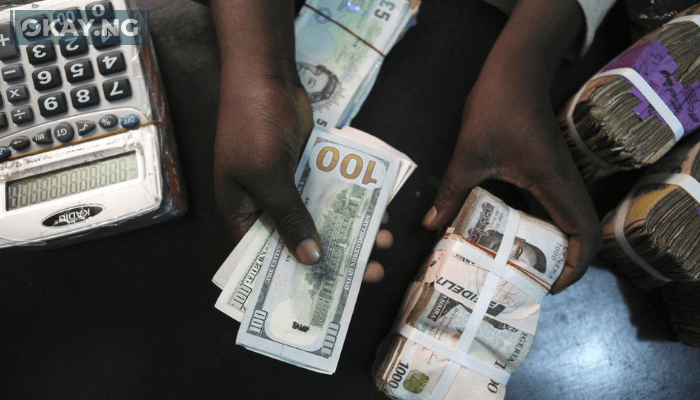The Central Bank of Nigeria (CBN) has announced a new policy that removes the ±2.5% cap spread on interbank foreign exchange (FX) transactions.
- What is the interbank FX market and why is it important?
- What was the previous policy on the interbank FX market and why was it introduced?
- What is the new policy on the interbank FX market and why was it implemented?
- What are the expected benefits of the new policy on the interbank FX market?
- What are the potential risks or challenges of the new policy on the interbank FX market?
This means that authorized dealers in the interbank FX market can now sell the proceeds from the market to any willing buyer at any price, without any limit or restriction.
This policy is expected to have significant implications for the Nigerian economy, especially the exchange rate, inflation, and foreign reserves. Here are some frequently asked questions and answers about the CBN’s decision and its effects.
What is the interbank FX market and why is it important?
The interbank FX market is where banks and other authorized dealers buy and sell foreign currencies among themselves. It is the primary source of FX supply for the Nigerian economy, as it determines the official exchange rate of the naira against other currencies. The interbank FX market is also where the CBN intervenes to stabilize the exchange rate and manage the foreign reserves.
What was the previous policy on the interbank FX market and why was it introduced?
The previous policy on the interbank FX market was introduced in August 2023, as part of the CBN’s efforts to unify the multiple exchange rates in the country and curb the activities of speculators and hoarders. The policy stipulated that the exchange rate cap spread on interbank FX transactions should be ±2.5% of the Nigerian Autonomous Foreign Exchange Market (NAFEM) previous day’s closing rate. This means that authorized dealers could not sell or buy FX at a rate that deviates more than 2.5% from the NAFEM rate. The policy also restricted the sale of interbank proceeds to only Bureau De Change (BDC) operators and end-users.
What is the new policy on the interbank FX market and why was it implemented?
The new policy on the interbank FX market was implemented on February 8, 2024, as part of the CBN’s ongoing FX market reforms to promote a market-based price discovery system. The policy discontinues any cap on the spread on interbank FX transactions and removes any restrictions on the sale of interbank proceeds. This means that authorized dealers can now sell or buy FX at any price they agree on with any willing buyer or seller, without any interference from the CBN. The policy also allows authorized dealers to sell interbank proceeds to anyone, including BDC operators, other authorized dealers, and end-users.
What are the expected benefits of the new policy on the interbank FX market?
The CBN expects the new policy to have the following benefits for the Nigerian economy:
- It will enhance the efficiency and transparency of the interbank FX market, as it will reflect the true demand and supply of FX in the country.
- It will reduce the pressure on the naira and the foreign reserves, as it will discourage speculation and hoarding of FX by authorized dealers and other market participants.
- It will improve the availability and accessibility of FX for genuine users, such as importers, exporters, investors, and remittance recipients.
- It will foster the convergence of the multiple exchange rates in the country, as it will narrow the gap between the interbank rate and the parallel market rate.
- It will boost the confidence and credibility of the interbank FX market, as it will align with the best practices and standards of the international FX market.
What are the potential risks or challenges of the new policy on the interbank FX market?
The new policy on the interbank FX market also poses some risks or challenges for the Nigerian economy, such as:
- It may increase the volatility and uncertainty of the exchange rate, as it will expose the naira to the fluctuations and shocks of the global FX market.
- It may trigger inflationary pressures, as it will increase the cost of imported goods and services, which account for a large share of the consumer price index.
- It may reduce the effectiveness and impact of the CBN’s interventions in the interbank FX market, as it will limit the CBN’s control and influence over the exchange rate and the foreign reserves.
- It may create opportunities for manipulation and abuse of the interbank FX market, as it will depend on the high ethical standards and compliance of the authorized dealers and other market participants.







